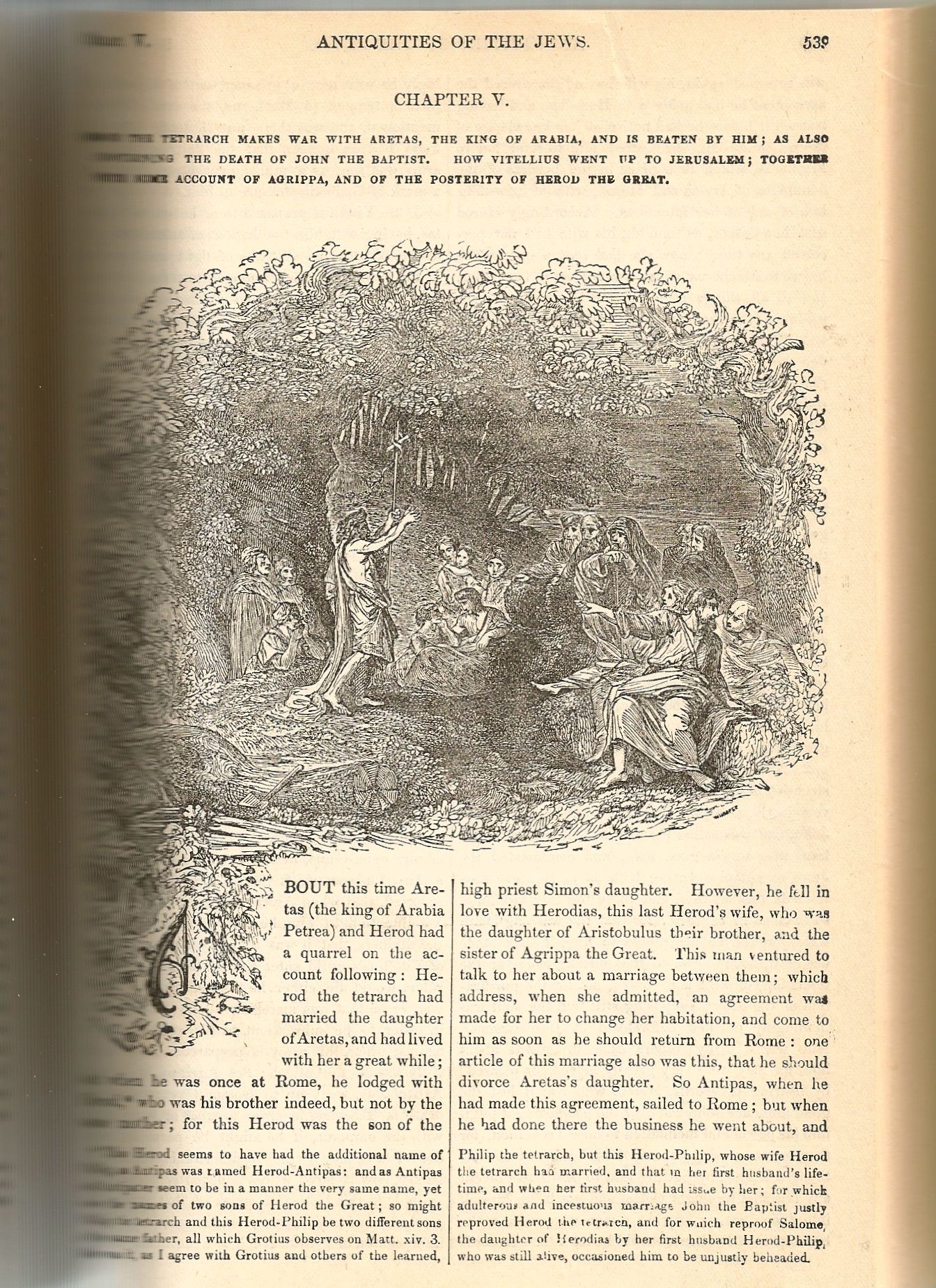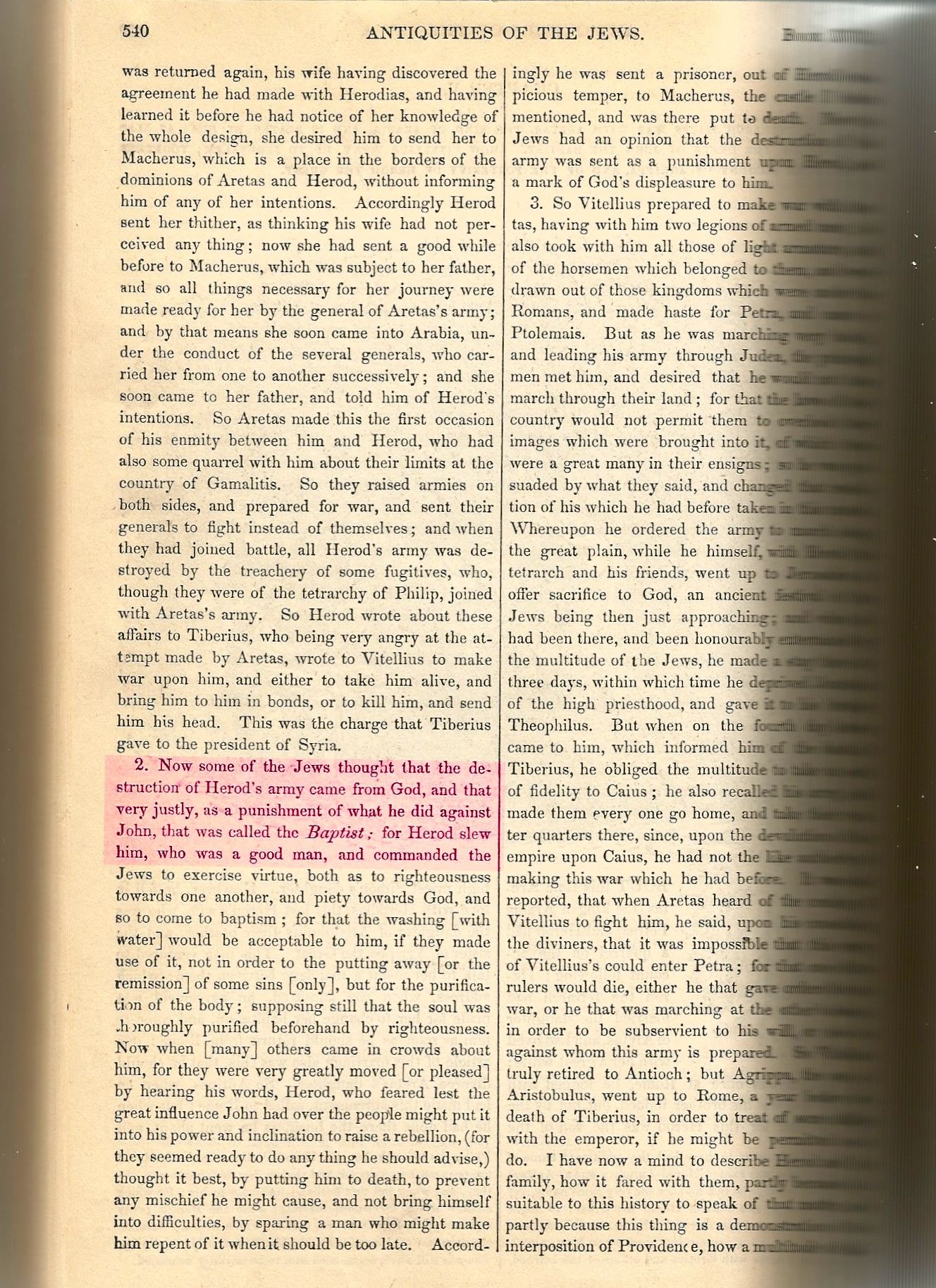Antiquities of the Jews
Author: Titus Flavius Josephus
Title: The Works of Flavius Joseph: Antiquities of the Jews
Form: historical non fiction
Published: c 94
Location: Roman Judea
Titus Flavius Josephus lived from 37-100 A.D. and recorded his version of the history of the Jewish people with special emphasis on the first century CE and the First Jewish–Roman War.
In his second book, Antiquities of the Jews, he names Herod Antipas, tetrarch of Galilee and Perea who is married to Herodias and is responsible for the death of John the Baptist. He also names Herodias’ daughter as Salome. This is how we know that Salome is the young dancing girl in the bible passages.
In chapter 5.1 and 5.2 he describes the following.
- Three brothers birthed of different mothers were Aristobulus, Herod Philip, and Herod Antipas.
- Artistobulus had a daughter Herodias, and a son Agrippa.
- Artistobulus first married Herodias to his brother Herod Philip, with whom she had a daughter, Salome.
- Artistobulus and then transferred Herodias’ marriage to Herod Antipas who was tetrarch and more powerful than her first husband.
- Herod Antipas first married the daughter of King Aretas of Arabia. The daughter’s name isn’t mentioned. Antipas then became enamored of his niece and sister-in-law Herodias, and divorced Aretas’s daughter to marry Herodias.
- Therefore, the marriage between Herod Antipas and Herodias was a second marriage for both of them. Both ex-spouses were still alive, which means the first marriages ended by divorce.
- John the Baptist had great influence over the Jewish people and Herod Antipas feared that John might raise a rebellion against him. Antipas sent John to King Aretas’ castle to be killed.
In chapter 5.4 we learn:
- Salome lived to marry Philip, son of the tetrarch of Trachonitis. He died, leaving her a childless widow. Salome then married Artistobulus and gave birth to three sons.
In chapter 7.1 we learn:
- Herodias is envious that the success of her brother, Agrippa, now outshines that of her husband Herod Antipas. Agrippa networked his way out of severe debt into great fortune.
- Herodias begs her husband to move with her to Rome where they can live a lifestyle that will upstage her brother’s prosperity. Antipas resists the idea, but then yields to her pleas. By the time they reach Rome, Caius (monarch) has been informed by Agrippa that Antipas is involved in plans to overthrow Caius.
- Caius strips Herod Antipas of his tetrarchy and bestows it on Agrippa. When he learns that Herodias is Agrippa’s sister, Caius offers her a portion of the wealth. In allegiance to her husband, Herodias refuses the gift and is banished with her husband.
NOTE:
- There is no mention of Herod Antipas’ opinion of his step-daughter Salome.
- Herod Antipas does not kill Salome.
- John the Baptist’s opinion of the marriages or divorces of Herod Antipas or Herodias is not mentioned.
- Herodias’ involvement in the decision to kill John the Baptist is not mentioned.





